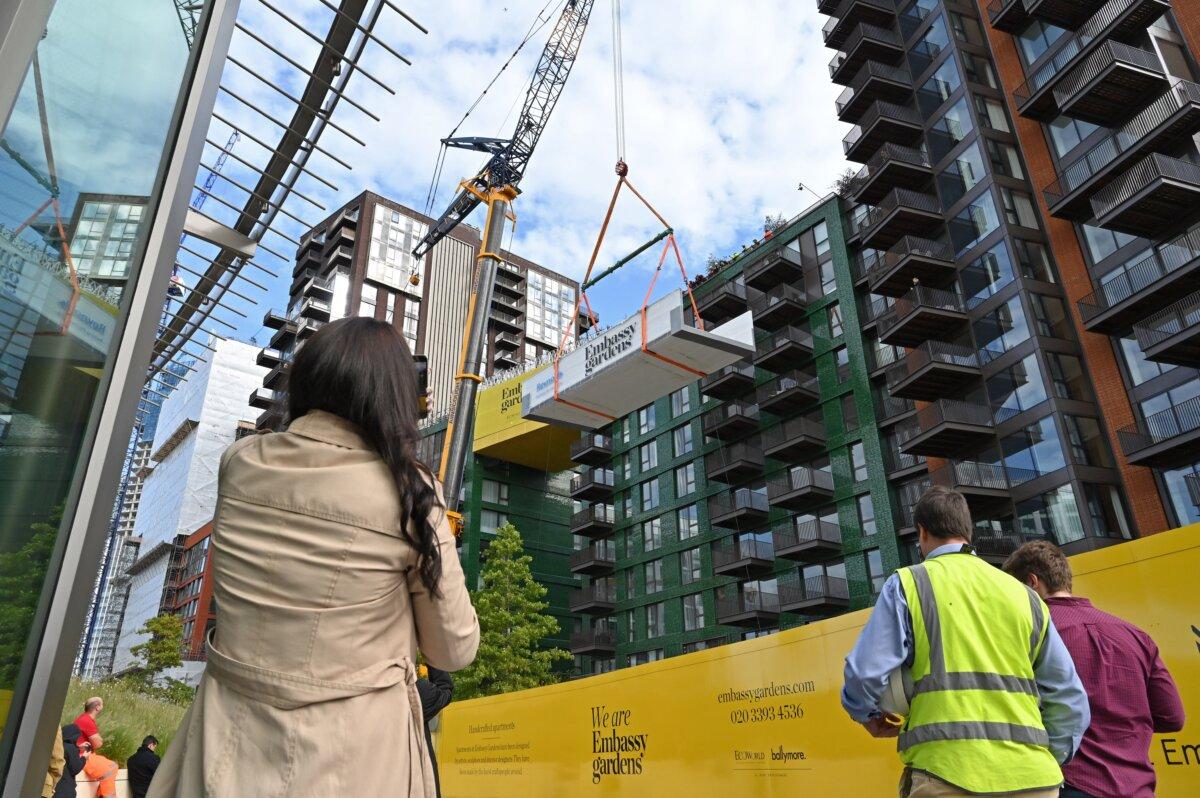A campaigner has warned of a “two-tier market” among leasehold properties as the government’s plan to abolish ground rents remains missing in its flagship bill.
It comes as the House of Lords is set to have its first debate on the Leasehold and Freehold Reform Bill on Wednesday.
Ground rents have already been abolished for most new leases from June 30, 2022, and for leases of retirement homes from April 1, 2023, but for other existing leases, people are still paying up to thousands of pounds for nothing, according to Mr. Scoffin, who said there’s “now a two-tier market.”
“My neighbour’s paying £1,500 a year in ground rent,” he said, adding that the amount is set to double in a few years’ time.
“That’s money for nothing. Gove gets it,” he said.
Commenting on the claim that abolishing ground rents would affect pension funds, the campaigner said supporters of the leasehold system are “having to invoke pension funds” because they can’t claim leaseholders are paying ground rents in exchange for anything.
Leasehold is a quasi-homeownership in which leaseholders have a tenant–landlord relationship with the landowners, who are called freeholders.
For instance, a person can buy a flat in a 100-apartment block for £250,000, but the land and the right to manage the block could be sold to a corporate freeholder for £625,000.
Leaseholders then have to pay ground rents and service charges to freeholders. And they do not have control over the choice or the costs for management companies or insurers.
In January 2023, Mr. Gove called leasehold “an outdated feudal system that needs to go,” but the bill he ended up introducing in November was drastically less ambitious.

Forfeiture
The bill, which has been criticised by “bitterly disappointed” leaseholders, seeks to abolish new leasehold on houses, but not flats, which account for most leasehold properties.Neither does it tackle the issue of forfeiture, which Mr. Scoffin said is the “most draconian, feudal aspect” of the system.
For a dispute over as little as £350, “if your home is worth £350,000, say, the whole £350,000 will go back to the freeholder,” he said.
Leaseholders can challenge forfeiture in court or decide to pay the bill, but “by that point, it’s almost too late because it’s going to cost thousands or tens of thousands in legal costs to defend it and sort it out,” he said.
He added: “Sometimes the debts aren’t even genuine. It’s like a manipulated service charge demand.”
Mr. Scoffin said the Free Leaseholders group also has evidence that developers are lowballing service charges to “hook buyers in” and the charge would “go through the roof” two years later, and there’s very little leaseholders can do about it.
Since the Grenfell Tower tragedy in 2017, a row has also broken out on who should pay to replace inflammable cladding materials in buildings, leading to a new law on assessing who is responsible to pay for the costs on blocks of 11 metres and above, with leaseholder contributions being capped at £15,000 within Greater London and £10,000 elsewhere.
Mr. Scoffin said the freeholders, who argued they were as innocent as the leaseholders, “didn’t have a leg to stand on.”
“Because in the good times, they were saying, ‘We’re the building owners.’ And then they control all the incomes and make the money.
“And then as soon as they’re supposed to pay for ... dangerous cladding, they then said, and they’ve said it publicly ... ‘We’re not the building owner, we just own 2.5 percent of the capital value.’ So what is it? ” he said.
“But then now we’re talking about leasehold reform, they’ve gone back to, ‘We’re the building owner, we’re the professional landlords, we’re the noble custodians.’”
Criticising the leasehold system, Mr. Scoffin said it’s “not an honest way of making money,” and more like a system of cartels rather than capitalism.








